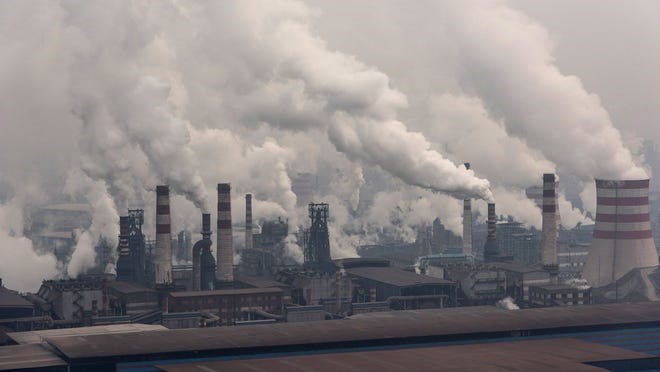The Lancet, one of the world’s leading medical journals, has been making an important pivot toward health in recent years.
Under the inspiring leadership of its longtime editor-in-chief, Dr. Richard Horton, it has championed the concept of planetary health, which is “the health of human civilization and the state of the natural systems on which it depends.”
Now comes the latest in a series of commissions on various aspects of planetary health. This one, published Feb. 22 and co-sponsored with the World Health Organization and UNICEF, is on the health of children in the future.
The commission’s report places children “at the centre of the SDGs [sustainable development goals]: at the heart of the concept of sustainability and our shared human endeavour.”
It has three main foci: The health impacts of poverty and inequality, climate change and ecological damage, and commercial activities that harm children. I will deal with the first and third of the commission’s concerns next week, but this week I want to focus more on the second, given the state of the debate on climate change and energy policy in Canada today.
The commission is clear: “The ecological damage unleashed today endangers the future of children’s lives on our planet, their only home.” And the report points to the fact that while high-income countries do well with respect to “child flourishing,” as one would expect, “wealthier countries threaten the future of all children through carbon pollution.”
Canada exemplifies that point. With a score of 90 per cent, we rank 21st on an index of child flourishing, where the top 33 spots, with a range from 85 to 95 per cent, are held by high-income countries in Europe, as well as Australia, New Zealand and the United States.
However, in terms of the threat to the future health of children resulting from CO2 emissions in excess of internationally agreed 2030 targets, Canada ranks 170th out of 180 countries. This puts us “on course to cause runaway climate change and environmental disaster.”
That concern is reflected in two other recent reports, from very different sectors, that underline the urgency of the climate crisis we have created.
The first is an extract last week in the British daily The Guardian from a new book by Christiana Figueres — an experienced Costa Rican diplomat and from 2010-2016 the executive secretary of the UN Framework Convention on Climate Change — and her then senior adviser, Tom Rivett-Carnac.
Their book, The Future We Choose, includes a “worst case” scenario, set in 2050, in which no real action on climate change has been taken since 2015.
It is a grim picture of a world headed toward more than three degrees of warming by 2100: “No one knows what the future holds for their children and grandchildren: tipping point after tipping point is being reached, casting doubt on the form of future civilization.” (To be fair, the book has a positive bent, looking at how we can avoid this scenario.)
The second is a leaked report — also in The Guardian last week — from JP Morgan, one of the world’s leading investment banks. The Guardian reported that JP Morgan alone provided $75 billion US to the fossil-fuel sector since the Paris Accord on Climate Change.
According to The Guardian, the report by two JP Morgan economists warns that if we don’t change direction, but carry on as we are, this “would likely push the earth to a place that we haven’t seen for many millions of years.”
The consequences would be dire: “We cannot rule out catastrophic outcomes where human life as we know it is threatened,” they wrote, noting also that we have considerably understated the health and economic costs.
Clearly, further investment in fossil fuels is unethical, and is fast becoming a risky investment; the withdrawal by Teck Resources of its proposal for a vast oilsands mine has to be seen in this light.
So why would so many of Canada’s federal and provincial governments continue to support expansion of the extraction and export of fossil fuels? Instead of defending a dying industry, they need to be working to secure our children’s future by hastening the transition to a net-zero-carbon economy.
Dr. Trevor Hancock is a retired professor and senior scholar at the University of Victoria’s School of Public Health and Social Policy.



